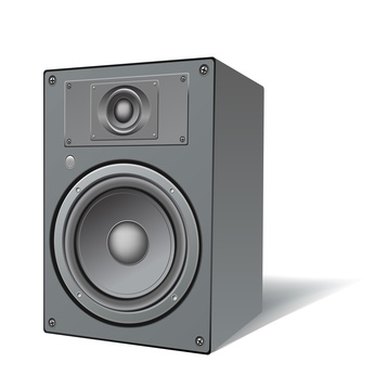
According to PhysLink.com, a short circuit is "a low resistance connection between the two conductors supplying electrical power to any circuit." An easier way to visualize this is to imagine a wire connecting the positive terminal to the negative terminal of a battery. This short circuit could cause the battery to explode.
Short circuits are also potentially damaging to home audio speakers. A short circuit on a loudspeaker occurs if any metal object connects the positive and negative terminals together.
Video of the Day
Video of the Day
Check the room's speaker wiring
Step 1
Unplug the amplifier that the loudspeakers are connected to.
Step 2
Check the speaker terminals on the system amplifier for a short circuit by accessing the rear of the amp and looking for any wires that connect one terminal directly to another. Short circuits occur at this point, if wires had been accidentally pulled when moving system components. If a short is found, immediately remove and reconnect the wires.
Step 3
Turn each loudspeaker around and check the terminals on the back of the units. Look for any wires that connect the positive and negative terminals together at that point. If a short is discovered, immediately remove the wires and reconnect them properly.
Step 4
Visually check the speaker wire that connects the amp to the speakers. Look for any crimping or cuts in the insulation. Short circuits can occur at any point in the signal chain. Replace any speaker wires with visual damage.
Check internal loudspeaker wiring
Step 1
Use a screwdriver to remove the largest driver on the loudspeakers. This will provide the easiest access to the internal wiring of the speaker.
Step 2
Visually examine the wiring that runs from the each speaker to the crossover circuit board located inside each speaker. Short circuits can occur at any point inside the loudspeaker, but, most frequently, will be found on the connections of the individual drivers.
Step 3
Check each driver in the loudspeakers for melted voice coils by pushing in on the speaker cone and listening for a rough or grinding sound. A driver with those characteristics is blown out and may be causing a short. Replace the driver with a comparable unit.